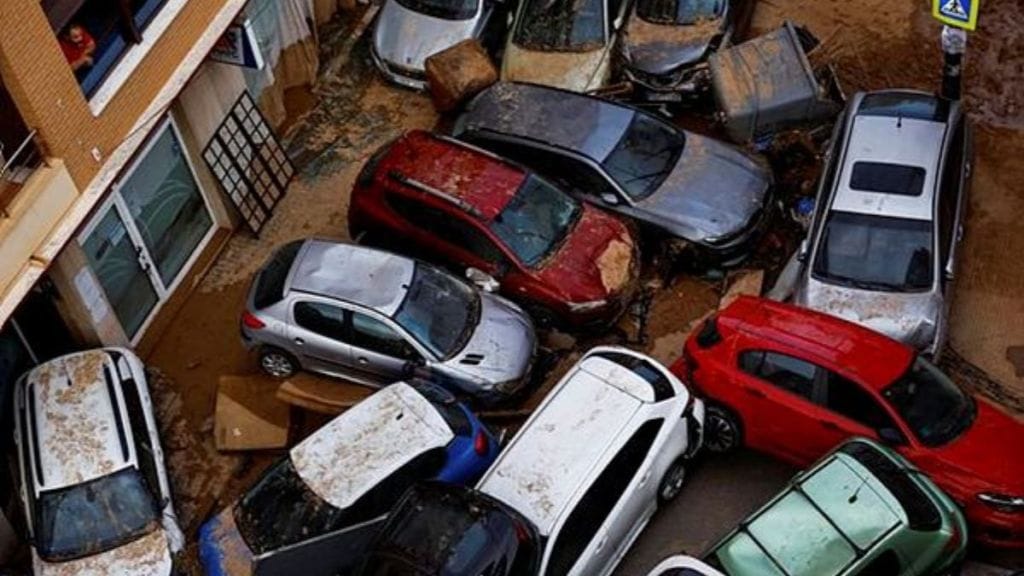Emergency crews continued their grim search for bodies in stranded vehicles and waterlogged buildings on Thursday (October 31) following catastrophic flash floods in Spain that have claimed at least 158 lives, with 155 fatalities reported in the eastern Valencia region alone. As residents search through the remnants of their homes, the scene resembles the aftermath of a tsunami, with survivors grappling with profound loss amidst the widespread destruction.
The flooding has left communities in Valencia, located south of Barcelona along the Mediterranean coast, submerged in mud and debris. Cars lie piled like fallen dominoes, while uprooted trees, downed power lines, and household items are entangled in the thick muck that now covers many streets. Spanish Transport Minister Óscar Puente confirmed the discovery of additional victims, stating, “Unfortunately, there are dead people inside some vehicles.”
Witnesses described harrowing scenes as rushing waters transformed narrow streets into death traps, sweeping away everything in their path. Luís Sánchez, a local welder, recounted saving several individuals trapped in their cars on a flooded highway. “I saw bodies floating past. I called out, but nothing,” he said, reflecting on the chaos and despair of that night.
Humanitarian efforts amidst ongoing challenges
Spanish Prime Minister Pedro Sánchez pledged that the priority remains finding victims and aiding their families during this tragic time, as the country enters three days of official mourning. Rescue efforts have already saved approximately 70 people stranded on rooftops and in vehicles, with over 1,000 soldiers from Spain’s emergency rescue units deployed to assist local responders.
While the most severe impacts have been felt in Valencia, other regions have also suffered. The storms have claimed lives in Castilla La Mancha and Andalusia, and significant damage to agriculture has been reported across southern Spain, known as “Europe’s garden.” The storms also spawned a rare tornado and a hailstorm that caused additional destruction.
Climate change and its impacts
Experts suggest that the severity of this flooding is exacerbated by climate change, which has intensified the frequency of extreme weather events in Spain. A rapid analysis by World Weather Attribution indicates that human-caused climate change has doubled the likelihood of storms like the recent deluge, which hit after nearly two years of drought. The ground was unable to absorb the heavy rainfall, resulting in catastrophic flash floods.
In the community of Paiporta, Mayor Maribel Albalat reported that at least 62 residents had perished, emphasizing that such flooding was unprecedented in their area. “(Paiporta) never has floods. It was a real trap,” she said, highlighting the unexpected nature of the disaster.
Ongoing recovery efforts
As recovery efforts continue, residents face challenges in accessing basic necessities. Many are without electricity, and a significant number lack running water, relying on bottled supplies. Valencia’s regional president has requested military assistance for distributing essential goods to those affected.
In the midst of the chaos, authorities reported the arrest of 39 individuals for looting. The Civil Guard has increased patrols to prevent further thefts from homes and businesses, as communities rally to recover from the devastating floods.
The full extent of the disaster remains to be seen as search operations progress and officials work to restore infrastructure and support those impacted by this tragedy.

